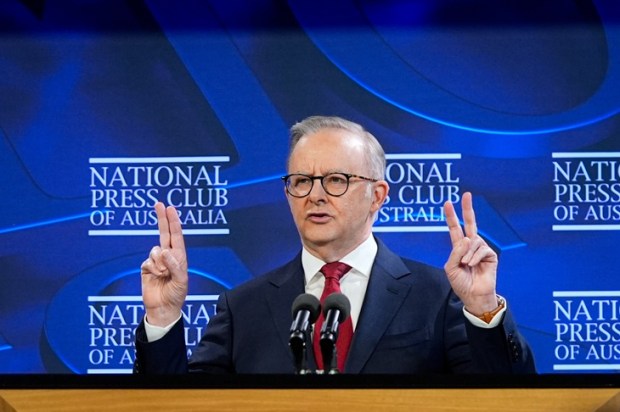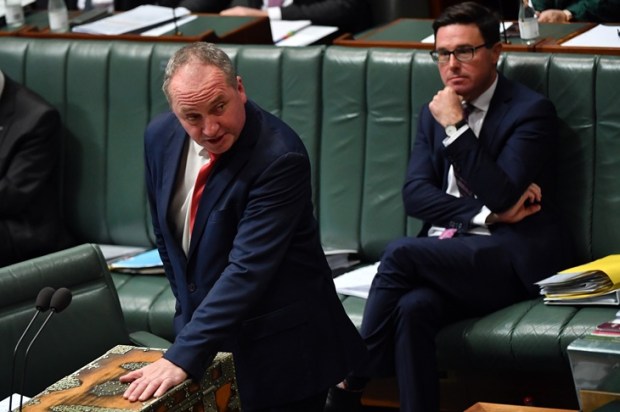Post-election commentary has focused on the various leadership changes for both the Coalition and government front bench. Much more important, given the potential to be in government for another two terms, is Labor’s policy outlook.
The Treasurer’s objective of ‘productivity without forgetting inflation’ is on the right track, but means little without more substance. It is hard to see how productivity will improve given that during Labor’s first term there was no evidence of specific policies that would generate increased business investment and greater competition rather than government-dominated spending and redistribution.
It is not known if Mr Albanese reads much history, but he should reflect on one of the most famous episodes in Western democratic politics, when Benjamin Disraeli stole the opposition’s policy platform. Having previously condemned William Gladstone’s modest Whig/Liberal proposals for electoral reform, Disraeli then introduced a much more radical version that became the Second Reform Act of 1867. ‘Don’t you see we have dished the Whigs?’ was the excited response from Disraeli’s party, after they poached their opponent’s platform and took credit for a reform that the Liberals had supposed was their own territory. According to one of the celebrated Punch cartoons of that era, ‘We caught the Liberals bathing and walked away with their clothes…’
Disraeli’s capture of the opposition platform was not some minor curiosity relevant only to mid-Victorian Britain. The ‘stolen’ Reform Act was a triumphant success, marking a significant milestone in expanding the electorate. Australia made an indirect but useful contribution, because the wider franchise and more liberal institutions in the pre-Federation Australian colonies implied that similar radical reform could be safely introduced in Britain. In the USA, prominent historians such as Gertrude Himmelfarb and William Shirer have described how Republicans and Democrats have often ‘dished’ each other rather than boxing themselves in with a program that does not meet current circumstances. ‘Dishing the Whigs’ has become the catchphrase for outflanking your opponents and taking credit for policies that were originally proposed by political rivals.
There is no shortage of policy candidates for Australia’s re-elected government to ‘dish the Whigs’. A good starting point would be education policy. Existing Labor policy treats schooling as if it is mainly a question of funding. Each public school receives an amount based on the school resource standard. This standard, which dates from the 2011 Gonski Review, establishes a baseline amount calculated on the number of pupils they enrol. Money always matters, but Labor policy is largely silent on how it should be spent. At the tertiary level, there is little more than a half-baked socially regressive intention (from a Labor government!) to reduce the burden of HECS debt.
Before the election, the Coalition developed a costed and evidence-based policy for schools in favour of fast-tracking explicit instruction, phonics-based literacy teaching, a rapid review of the national curriculum, initiatives to attract and train new teachers (especially in mathematics), and funding for student well-being. It is a mystery why the Coalition did not loudly proclaim this policy, but here is a perfect opportunity for the government to dish the Liberals and ‘walk away with their clothes’.
This school-level policy could be combined with tertiary reform that would substantially outperform the Coalition’s fiddling about with the number of international students. Australia has been well served by the Dawkins reforms of nearly 40 years ago, but higher education is now in desperate need of structural, administrative, and financial change. There would be sweet poignancy in the idea that today’s Labor government could implement a new era of tertiary reform that not only improves on Coalition policy but also extends the achievement of the Hawke/Dawkins reforms.
There could scarcely be a stronger candidate for dishing the Coalition than adopting civilian nuclear power. No one suggests this could be done easily or quickly. But it is increasingly clear from worldwide evidence that the goal of Net Zero (if it is to remain) cannot be achieved cost-effectively by reliance on renewables.
Early in its first term the Albanese government took the principled decision to endorse Aukus and equip Australia with nuclear-powered submarines. This decision was accepted without serious dissent, suggesting that the political task of selling nuclear energy is not inherently more difficult than that faced by Disraeli when extending the franchise from property owners to the new working class of industrial northern England. A declaration that the government will repeal the existing bans on nuclear power and develop a regulatory regime for a nuclear power industry would not only dish the Liberals: it would transform the nuclear debate in Australia.
Defence provides yet another example. The standard procedure of measuring defence expenditure as a percentage of GDP is a crude proxy that tells us little about actual capability. Despite the limitations, there is no mistaking the substantive difference of nearly 30 per cent between Labor plans to spend 2.35 per cent of GDP by 2034 and the Coalition’s projected 3 per cent of GDP.
Reminiscent of that famous Theodore Roosevelt advice to ‘speak softly and carry a big stick’, the Prime Minister demonstrably prefers to conduct foreign policy with the gently accommodating approach implied by the first half of that aphorism. There is much to be said for speaking softly in a stable world, but stability does not describe current international circumstances. If ever there was a case, in the national interest, for ‘dishing the Whigs’ it lies in adopting the Liberals’ target of spending 3 per cent of GDP on our defence capability. Speaking early in the first world war, Roosevelt emphasised the unmistakable evidence that ‘no amount of speaking softly will save any people which does not carry a big stick’. The realpolitik implicit in a policy of ‘dishing the Whigs’ is not to everyone’s taste. But even if we dislike the hard-headed Disraeli approach, surely Mr Albanese would prefer not to leave a legacy as Australia’s Neville Chamberlain?

























